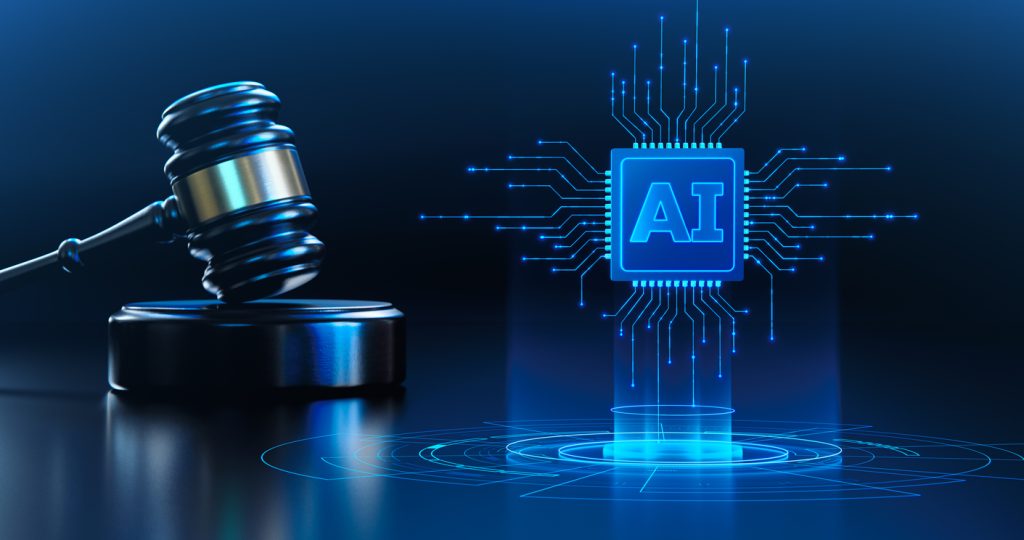- 2 Nov 2025

The integration of artificial intelligence into the justice system has raised pressing questions about transparency, fairness, and individual rights. One of the most significant issues revolves around AI informed consent in legal cases, which ensures that parties fully understand when and how AI systems are being used to influence outcomes that could alter their lives.
As courts, attorneys, and litigants increasingly rely on machine learning tools for tasks ranging from predictive analytics to legal document review, the demand for clearly defined and communicated consent has never been more urgent. Without it, questions of fairness, due process, and trust in the legal system quickly come into play.
Defining AI Informed Consent in Legal Cases
Traditionally, informed consent has been a principle rooted in medicine and law. It ensures that individuals know what they are agreeing to and understand both benefits and risks before giving approval. When applied to artificial intelligence, the concept of AI informed consent in legal cases extends to acknowledging that machine-driven recommendations or assessments may impact critical decisions such as sentencing, bail, or liability findings.
This consent is not a mere formality; it establishes accountability, clarifies expectations, and reinforces the fairness of the process. It also guarantees that litigants are not subjected to hidden or misunderstood mechanisms that could shape their case without their knowledge.
Why AI Informed Consent in Legal Cases Is a Safeguard for Justice
The absence of informed consent undermines core legal values. If litigants are unaware that algorithms are influencing their case, the principle of procedural fairness erodes. AI informed consent in legal cases functions as a safeguard against this erosion, ensuring that litigants can challenge, accept, or question the use of AI.
Consent also strengthens the right to appeal. If individuals are explicitly informed that AI tools have shaped their legal process, they can argue whether those tools were applied correctly or appropriately. This creates a trail of accountability, allowing courts to examine whether justice was genuinely served.
The Relationship Between Transparency and AI Informed Consent in Legal Cases
Transparency in AI is often criticized as insufficient, especially when dealing with complex algorithms. However, consent bridges this gap. By requiring disclosure, AI informed consent in legal cases forces stakeholders to reveal when AI systems are in use and how they are influencing legal decisions.
Transparency builds trust. Without it, litigants may perceive AI involvement as a hidden disadvantage. With consent, they understand not only that AI is present but also its potential implications, giving them the ability to prepare, challenge, or request alternative approaches.
Legal Frameworks Shaping AI Informed Consent in Legal Cases
Although legislation around AI remains fragmented, the importance of informed consent is widely acknowledged. Courts and policymakers have recognized that consent aligns with constitutional principles of due process. For example, U.S. federal agencies, such as the U.S. Courts Administrative Office, stress the importance of transparency when adopting new technologies within legal procedures.
This recognition is not uniform across jurisdictions, but the trend is unmistakable: AI cannot become a silent participant in the courtroom. Instead, AI informed consent in legal cases must be integrated into evolving legal frameworks to protect constitutional rights.
Ethical Implications of AI Informed Consent in Legal Cases
Ethics lie at the heart of consent. Lawyers and judges face ethical responsibilities to disclose AI’s role in case management or decision-making. Without proper consent, litigants could be subjected to biased or flawed outputs without realizing it.
The ethical dimension of AI informed consent in legal cases ensures that litigants retain autonomy. It prevents the erosion of agency, ensuring they actively participate in decisions rather than becoming passive recipients of AI-driven outcomes.
Risks of Overlooking AI Informed Consent in Legal Cases
Neglecting informed consent in the AI era presents tangible risks. Litigants may later discover that an algorithm influenced their sentencing, damages calculation, or case prioritization without their knowledge. Such revelations could lead to appeals, mistrials, and the loss of confidence in the judiciary.
Beyond legal repercussions, the public’s trust in AI-integrated justice systems depends heavily on the presence of explicit consent. Without it, skepticism and resistance toward technological adoption in legal settings are inevitable.
Drafting Effective AI Informed Consent in Legal Cases
Creating strong consent documents requires clarity, precision, and accessibility. The drafting process must detail the specific AI tools being used, their intended function, and potential limitations. A well-structured consent letter ensures litigants cannot claim ignorance of the role AI played in their proceedings.
For example, resources like the informed consent letter for the use of AI tools in legal case management demonstrate how detailed disclosure strengthens fairness and trust. Such templates reflect how transparency and consent can be embedded directly into legal practice.
The Role of Courts in Enforcing AI Informed Consent in Legal Cases
Courts hold the responsibility of enforcing fairness and due process. They must establish guidelines ensuring that AI use is disclosed and that parties explicitly agree to its application. AI informed consent in legal cases should not be optional or implied; it should be a mandatory safeguard upheld by judges to maintain the integrity of legal outcomes.
Courts may also mandate uniform consent procedures to prevent discrepancies between different jurisdictions. This standardization ensures that litigants across the country receive equal protection from undisclosed AI influence.
How AI Informed Consent in Legal Cases Shapes Future Litigation
The future of litigation will undoubtedly involve greater AI adoption. Predictive analytics, automated discovery, and even AI-assisted judgments are already being tested. In such a landscape, AI informed consent in legal cases will define the legitimacy of outcomes.
Consent will also determine whether litigants accept AI as a fair tool or resist its integration. Without it, challenges and appeals will grow, slowing down technological progress in courts. With it, AI’s role will be normalized, trusted, and better integrated into the justice system.
Conclusion: Why AI Informed Consent in Legal Cases Cannot Be Overlooked
In today’s evolving legal environment, the use of AI demands careful oversight. The principle of AI informed consent in legal cases ensures that litigants are aware, empowered, and protected from hidden technological influence. It aligns with legal principles of transparency, due process, and accountability while reinforcing public trust in justice systems.
By requiring explicit consent, courts and attorneys not only uphold constitutional values but also safeguard the fairness of proceedings in an era where algorithms increasingly shape legal outcomes. As AI continues to grow in influence, informed consent will stand as one of the most critical protections for ensuring justice remains transparent and equitable.
Recent posts
- 17 Oct 2025
Categories
- Accident & Injury Law (54)
- AI (1)
- Copyright Law (1)
- Criminal & Civil Law (17)
- Disability Law (2)
- Driving Law (2)
- Employment Law (1)
- Estate Planning (2)
- Family & Relationship Law (29)
- Food and Drink (2)
- Gas Exposure (1)
- Health (1)
- Immigration Law (2)
- Injury Claim (1)
- Insurance Law (7)
- Legal (40)
- Lemon Law (4)
- Mediation (3)
- Medical Malpractice (1)
- Property & Business Law (9)
- Severance Agreement (1)
- Travel and Leisure (1)
- Uncategorized (12)
- Worker Compensation (2)




